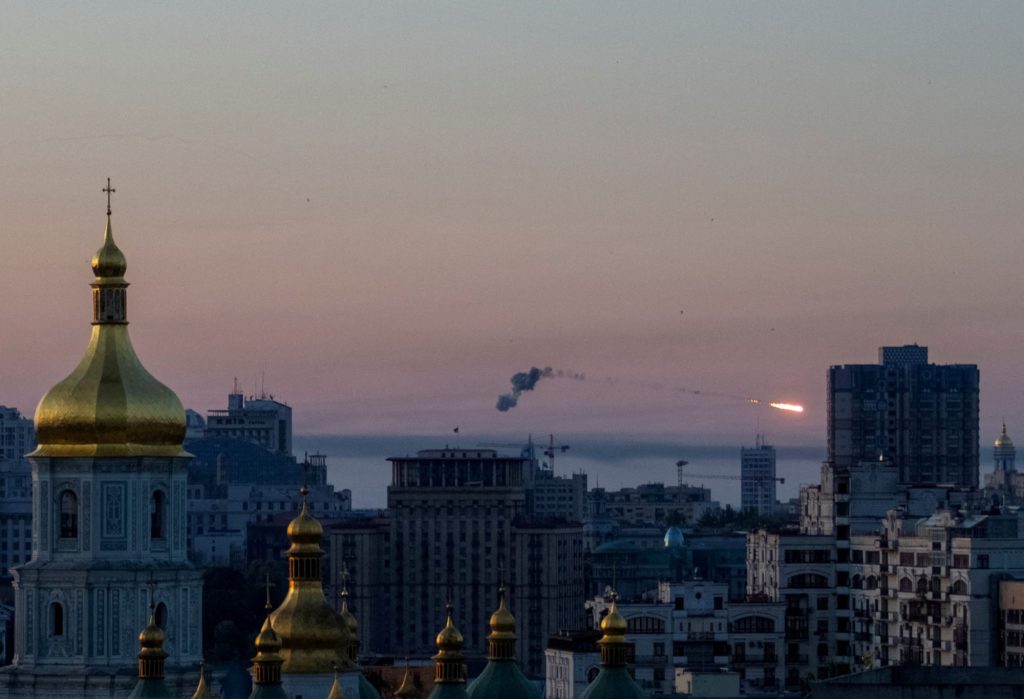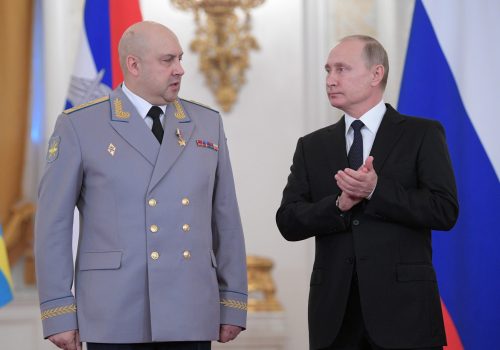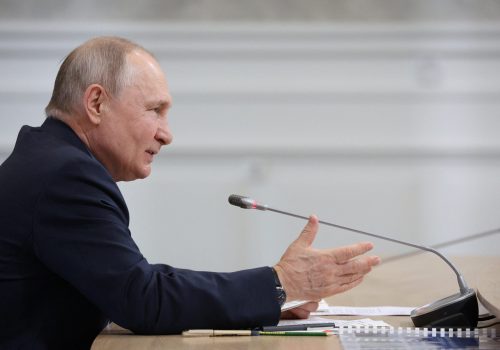With Russia’s invasion of Ukraine now in its eighteenth month, the courage of the Ukrainian army and the resilience of the Ukrainian people have inspired the world, generating enormous amounts of international sympathy and goodwill. Audiences everywhere are rooting for Ukraine to win the war and succeed in its postwar reconstruction efforts. However, while Ukraine battles the Russian army, corruption continues to threaten the country from within and could help the Kremlin achieve its goals even while Moscow is struggling militarily.
The multiple anti-corruption agencies established by Ukraine following the country’s 2014 Euromaidan Revolution have yet to bring any high-ranking corrupt officials or oligarchs to justice. Instead, critics claim these agencies are frequently manipulated and weaponized in order to target reformers. While there have been no landmark breakthroughs in the battle against corruption within state organs, numerous reformers have had their reputations damaged.
For example, Ukraine’s Supreme Court finally acquitted former Ukrainian Transportation Minister Volodymyr Omelyan in March 2023 over charges brought by the National Anti-Corruption Bureau of Ukraine (NABU) that he illegally ordered the reduction of all port fees by 20 percent while in office. It took this former minister with strong reformist credentials six years and significant legal fees to clear his name and get the charges dismissed.
Stay updated
As the world watches the Russian invasion of Ukraine unfold, UkraineAlert delivers the best Atlantic Council expert insight and analysis on Ukraine twice a week directly to your inbox.
Concerns are now growing over the wartime performance of Ukraine’s anti-corruption agencies. In December 2022, courts in Chernihiv suspended the mayor of the city over a supposed conflict of interest. Vladyslav Atroshchenko had been a fixture in local politics in the city for 20 years, serving as governor and member of parliament before finally becoming mayor. The court ruling to suspend him from office has raised questions over the role of Ukraine’s anti-corruption bodies.
What was the reason for Atroshchenko’s removal? With Chernihiv on the front lines in the first days of the Russian invasion, the mayor used a car belonging to the municipal authorities to send his wife to safety in Poland while he stayed to help with the defense of the city. The car was later returned, but the National Agency for the Prevention of Corruption (NAPC) issued an administrative protocol claiming the mayor had failed to report this alleged “conflict of interest.” A Ukrainian court then ruled to remove the mayor from office on this technicality.
Eurasia Center events

There are similar concerns in Rivne, where a judge recently suspended the city’s 36-year-old mayor Oleksandr Tretyak on the grounds that he also failed to disclose an alleged conflict of interest. Once again, Ukraine’s anti-corruption agencies are involved. In February 2023, the NAPC issued an administrative protocol against the mayor for a technical “conflict of interest” related to the payment of a bonus to an employee who had made a donation to Tretyak’s election campaign some years earlier while working as a campaign volunteer.
This charge is particularly contentious because bonuses are widely used throughout the Ukrainian government to retain key staff, reward hard work, and discourage the taking of bribes as public officials typically receive low salaries. Nevertheless, the NAPC accused the mayor of failing to inform them of a “conflict of interest.” Critics have alleged that this as an example of unreformed courts working together with anti-corruption agencies to secure politically motivated verdicts. The case is on appeal with an uncertain outcome.
With so many Ukrainians currently making huge sacrifices to ensure the country’s survival, accusations that anti-corruption agencies are being misused to target reformers and political opponents could have a significant negative impact on morale. This alarming trend risks undoing the progress of the past nine years and undermining Ukraine’s chances of achieving further Euro-Atlantic integration. If it remains unaddressed, it could see Ukraine trapped in the geopolitical gray zone and vulnerable to further Russian aggression.
Corruption has long been seen as a critical element of Russian efforts to retain control over Ukraine and prevent the country from decisively exiting the Kremlin orbit. In other words, Russia wins when Ukrainian corruption continues, regardless of the outcome on the battlefield. Ukrainian victory will only come when both Russia and corruption are decisively defeated.
Brian Mefford is the Director of Wooden Horse Strategies, LLC, a governmental-relations and strategic communications firm based in Kyiv. He is a senior nonresident fellow at the Atlantic Council and has lived and worked in Ukraine since 1999.
Further reading
The views expressed in UkraineAlert are solely those of the authors and do not necessarily reflect the views of the Atlantic Council, its staff, or its supporters.

The Eurasia Center’s mission is to enhance transatlantic cooperation in promoting stability, democratic values and prosperity in Eurasia, from Eastern Europe and Turkey in the West to the Caucasus, Russia and Central Asia in the East.
Follow us on social media
and support our work
Image: An explosion of a missile is seen in the sky over the city during a Russian missile strike, amid Russia's attack on Ukraine, in Kyiv, Ukraine May 18, 2023. (REUTERS/Stringer)




